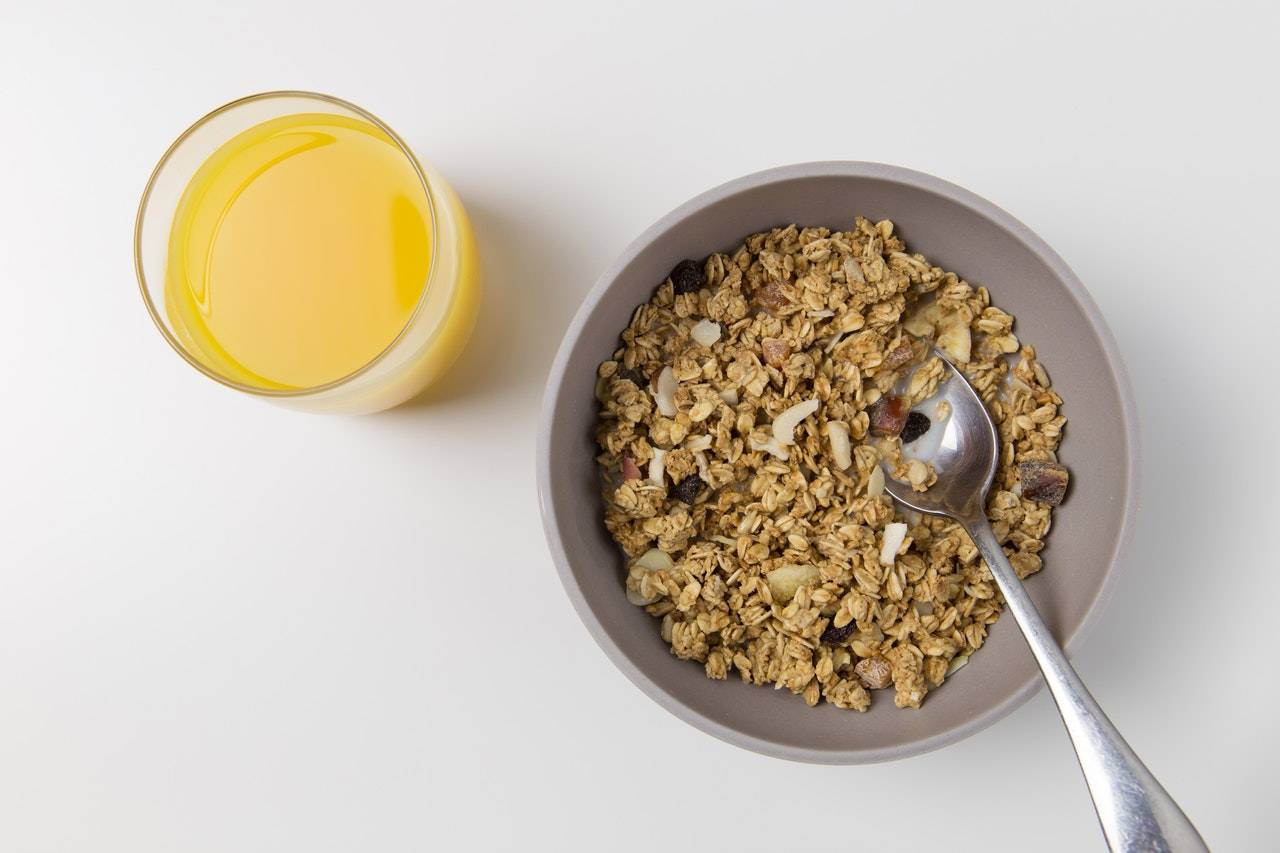Heart Healthy Oats.
Whole Groat Oats: Oats in its simplest edible form. This is the stage where the oats have been harvested, cleaned and removed from the hull, which is the inedible outer layer. This type is mostly found in your local health food store and at this stage, oats take the longest time to cook.
Steel Cut Oats
Stolen the hearts of health gurus around the world, these oats have been cut with a sharp steel blade to make it easier to cook due to the smaller pieces of grains that open to absorb more water.
Rolled Oats (Regular or Old Fashioned)
Involves the steaming and rolling of the whole groat oats to create flakes. This process preserves the natural oils in the oat grain and keeps it fresher longer and also easier to cook.
Rolled Oats (Quick or Instant)
Longer steaming and more rolling of the old fashioned oats to allow ease in your kitchen on those hectic mornings – best for people on the go!
Interesting Oats Nutrients Facts
Oats contain a number of nutrients including Vitamin B, fibre and protein and magnesium.
Magnesium is a magnificent mineral usually paired with calcium because of its ability to aid in the normalisation of blood pressure, keeping bones strong and steady heart rhythm.
Foods with high fibre are an excellent source of complex carbohydrates, boasting a low glycemic index – the body takes a longer time to digest these foods, slowly releasing glucose into the blood rather than a spike in blood glucose and insulin levels.
High levels of insulin and blood sugar encourage the body to produce and store fat (common in persons with diabetes). Oats contain beta-glucans, which is a type of soluble fibre that slows down the absorption of carbohydrates into the blood stream.
The properties of oats have proven its ability to reduce the risk of heart disease and diabetes, in addition, scientists have found that oats porridge contains avenanthramides, which is a chemical that prevents the sticking of blood cells to artery walls that can possibly cause fatty deposits resulting in high cholesterol.
To continue reading , purchase Vol. 7 #10 2015 issue
Also read 5 Interesting Reasons Why You Are Not Losing Weight


Share this post:
Heart Healthy Oats.
Whole Groat Oats: Oats in its simplest edible form. This is the stage where the oats have been harvested, cleaned and removed from the hull, which is the inedible outer layer. This type is mostly found in your local health food store and at this stage, oats take the longest time to cook.
Steel Cut Oats
Stolen the hearts of health gurus around the world, these oats have been cut with a sharp steel blade to make it easier to cook due to the smaller pieces of grains that open to absorb more water.
Rolled Oats (Regular or Old Fashioned)
Involves the steaming and rolling of the whole groat oats to create flakes. This process preserves the natural oils in the oat grain and keeps it fresher longer and also easier to cook.
Rolled Oats (Quick or Instant)
Longer steaming and more rolling of the old fashioned oats to allow ease in your kitchen on those hectic mornings – best for people on the go!
Interesting Oats Nutrients Facts
Oats contain a number of nutrients including Vitamin B, fibre and protein and magnesium.
Magnesium is a magnificent mineral usually paired with calcium because of its ability to aid in the normalisation of blood pressure, keeping bones strong and steady heart rhythm.
Foods with high fibre are an excellent source of complex carbohydrates, boasting a low glycemic index – the body takes a longer time to digest these foods, slowly releasing glucose into the blood rather than a spike in blood glucose and insulin levels.
High levels of insulin and blood sugar encourage the body to produce and store fat (common in persons with diabetes). Oats contain beta-glucans, which is a type of soluble fibre that slows down the absorption of carbohydrates into the blood stream.
The properties of oats have proven its ability to reduce the risk of heart disease and diabetes, in addition, scientists have found that oats porridge contains avenanthramides, which is a chemical that prevents the sticking of blood cells to artery walls that can possibly cause fatty deposits resulting in high cholesterol.
To continue reading , purchase Vol. 7 #10 2015 issue
Also read 5 Interesting Reasons Why You Are Not Losing Weight
Share this post: